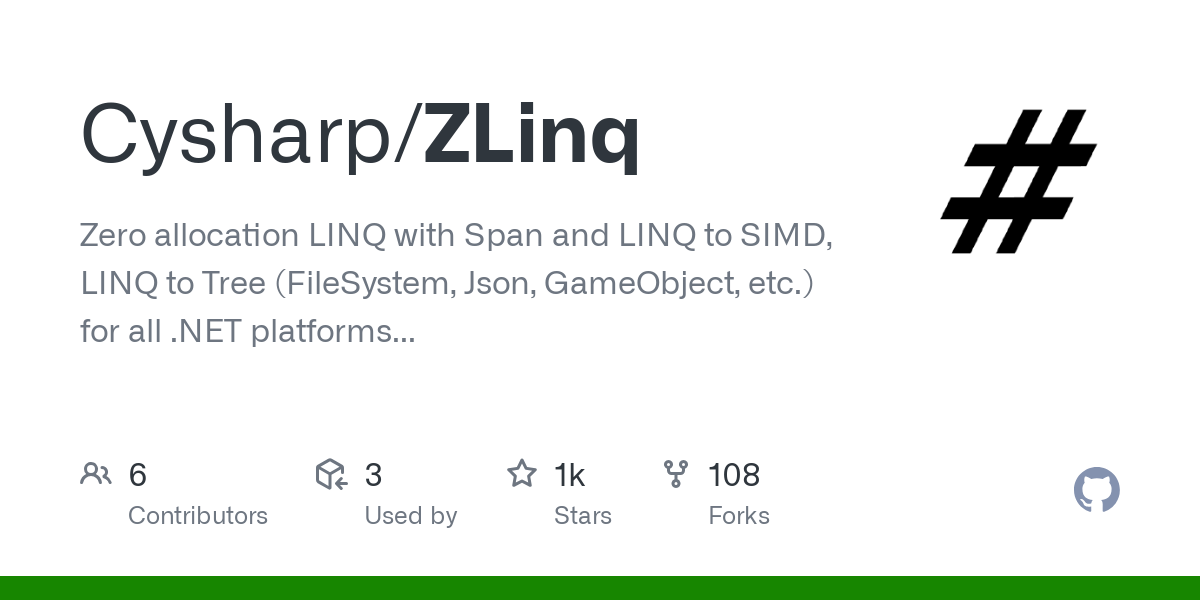I’ve recently discovered this project, which assuming it works as advertised (which I think wasn’t really tested yet, since it seems to be a pretty new repo) sounds like a pretty good library to add into your toolbox.
For those that do not know, LINQ is basically a query language over collections in C#, that allows you (from the top of my head) to do stuff like
someList.Where(x => x.value < 10).OrderBy(x => x.priority).Select(x => x.name)
which would give you a IEnumerable list with names of elements where value is smaller than 10, ordered by priority.
However, using LINQ in performance critical code, such as per-frame Updates, is not really a good idea because it unfortunately does generate a lot of garbage (allocations for GC to collect). Having a version that doesn’t allocate anything sounds awesome, assuming you are a fan of LINQ.
What are your thoughts? For me, it sounds like something really useful. While it’s not really that difficult to avoid LINQ, I’m a fan of the simplicity and descriptive nature of the syntax, and not having to avoid it would be great. It does seem there are quite a few issues starting to pop up, but it’s definitely a project that could be worth it to follow.



I didn’t know that LINQ had more usages than just me being lazy to write a for loop, I have something to look into, thanks. Judging by the first documentation page I found, I wouldn’t even recognize the syntax as the LINQ I’m used to. I really need to catch up on new C# stuff.
I don’t think I understand why would it be uncalled for, though. At least in the context of game development, where even small allocations can be a problem, it feels ok to generalize, especially if most people probably only encounter LINQ in it’s basic form instead of the other use cases. Mostly for the sake of new programmers, who may fall into a trap of over-using it.
Unless you are talking about using the term garbage, which now I realize may sound degradatory. That wasn’t my intention, and I don’t have any negative connotations with that word, so it was not meant in a negative way - I though it’s the correct terminology for allocations that need to be collected by garbage collector later, which is an issue in performance critical applications.
Personally, I hate the expression syntax. I would stick with the method syntax. (That you know and use and that ZLINQ is compatible to.)
The good thing about method syntax is that you have a clearly scoped context and state flow. You type
.Where, add a condition that is limited to the Where precondition parameter expression body, and afterwards have a clear state/result again.That is not the case in expression syntax. You can have variables, the operator order and aliasing is confusing, it’s SQL but worse.
I agree that in the context of gamedev you could generalize and call it such, but even then, saying “LINQ produces garbage” is over-generalized and missing context. It’s the wrong tool for the job/gamedev. Doesn’t mean it produces garbage/junk. In my eyes anyway. I feel like that context is important.
For me, garbage implies no use. What it allocates it makes use of. It’s just the wrong approach alltogether for gamedev.